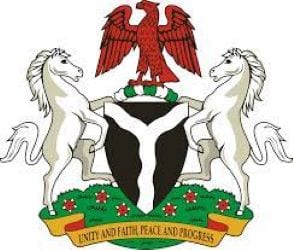The Chief Executive Officer of CFG Advisory, Mr. Tilewa Adebajo, has called on the Federal Government (FG) to put an end to the wasteful spending on petrol and electricity subsidies.
Adebajo stated that subsidy payments are detrimental to the nation’s economy and no longer sustainable. He also called for the privatisation of the Transmission Company of Nigeria (TCN) to make the agency more efficient in its mandate in the Nigerian power sector.
READ ALSO: NBA, SANs Fault Buhari’s on Grazing Routes Gazette
The economic expert described subsidy payment as one of the biggest political problems facing Nigeria. He noted that even those in the current federal government were the ones that protested against the removal of petrol subsidy by the past administration.
Adebajo also made reference to the recent declaration by the Group Managing Director of the Nigerian National Petroleum Corporation (NNPC), Mallam Mele Kyari, that the corporation would no longer sustain its remittances into the Federation’s Account due to subsidy payments, noting that one of the key structural reforms needed to be made by the government was the removal of subsidy.
Adebajo said: “The subsidy issue in Nigeria is one of the biggest political problems we have had. Unfortunately, the problem has been politicised, because if you remember clearly, the same set of people who are in government today were the one who were protesting against subsidy removal by the last government.
“But obviously, we can see that the subsidy is not sustainable. You saw the NNPC GMD complaining about the rising prices of fuel and how that is going to impact subsidies.
“The NNPC itself has said it can no longer sustain its remittances into the Federation Account because it has to pay for these subsidies, and the higher the petroleum prices go up, the more the NNPC would have to put aside for subsidies and the less that is going to not only the federal government but the state governments.
“So, we are getting ourselves into this vicious cycle and it’s clear that one of the reforms, one of the key structural reforms we need to make is removal of the subsidy. And to re-enforce this, I think the President’s economic management team has also made that recommendation for subsidy because it’s clearly, it’s no longer sustainable.”
He said similar reform where the subsidy regime would no longer be in place should apply in the nation’s power sector, to enable the distribution companies make the necessary investments for efficient service delivery.
He pointed out that the country spends about $2 billion annually to subside electricity, adding that most of the subsidy does not benefit the poor, maintaining that eighty per cent of that subsidy went to rich people that can afford to pay electricity tariffs.
Adebajo further said: “So, that needs to be scrapped and the power sector reforms need to be put in place so that the distribution companies can make the necessary investment to make the grid more efficient.
“Subsidies are detrimental to the economy and we have a situation whereby government is spending 90 per cent of its revenues to service debts. Clearly, we are into a debt trap and a vicious cycle that is no longer sustainable.”
He considers it very important that the government should drops subsidy in order to have significant revenue and be able to fund its operations on a day-to-day basis. Because it is clear that the government is finding it difficult to right-size.
“So, that for me, is a no-brainer, it’s not something that we should talk about and it’s important that we ginger up the political will to get that done.”
On the issue of power supply, Adebajo blamed the TCN as the amin cause of the problem in the country’s power sector. He explained that the sector cannot distribute the power generated into the grid due to collapse and called on the Federal Government to privatize the TCN to make it more efficient and capable of transmitting electricity generated to the distribution companies.
The CFG boss equally urged the Presidential Muhammadu Buhari-led federal government to use the remaining two years of its administration to complete the key infrastructure projects under construction such as rail, roads and bridges.
Adebajo stated that over the next two years, according to projections, another 11 million people were expected to go into poverty and that by the time the current government would be leaving office, over 100 million Nigerians were expected to be in poverty.
He, therefore, advised that it was important that the Buhari government complete those infrastructure projects to catalyse job creation and prevent the unemployment upsurge.

